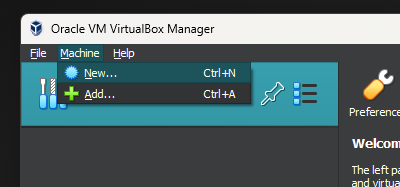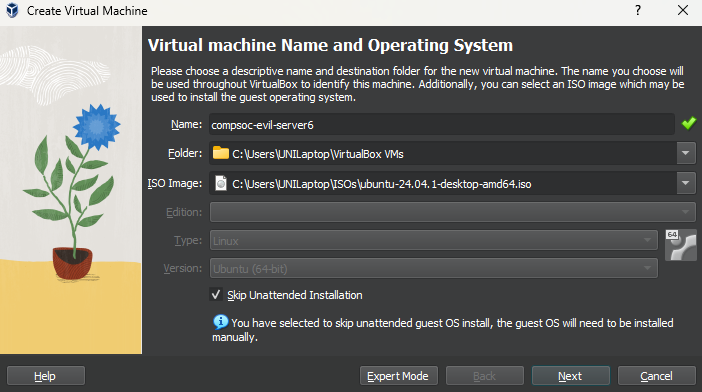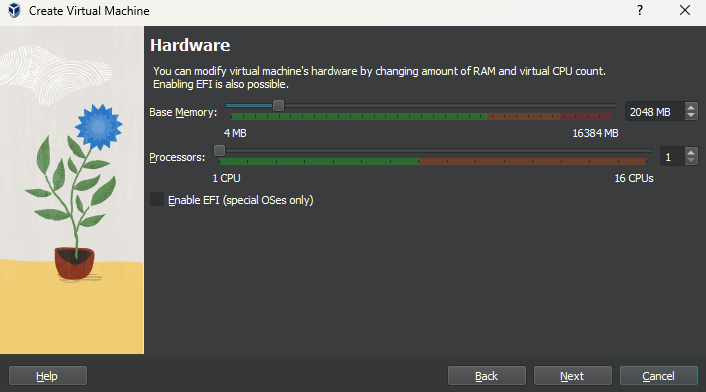when you open VirtualBox, create a new VM like this:

so what is a virtual machine???
basically you run another smaller computer in your computer
*insert inception joke here\*
there's a lot of *virtualization* software out there, but we'll be using VirtualBox today
It's free, and it's pretty easy to use
you can download it here
if you already know all of this just wait we have more stuff after this
when you open VirtualBox, create a new VM like this:

then choose a name and select the image to use for the OS

I'll be using Ubuntu 24.04, if you want to use another linux distro you probably know how to do this already
now, select how much memory and CPU you want to allocate to the new VM

The defaults you get are fine for this demo
and finally, choose how much storage you want to give the VM

10GB is enough for now, you can use more if you want
we still need to install the operating system but that's easy enough
*live demo in progress\*
you probably saw how many resources it takes to run a VM
what if I want to only run a single app without all the overhead??
containers are kind of like VMs, but much lighter
instead of emulating an entire computer, they just run the OS
one of the most popular container platforms is Docker
rn we will use it on the VM we just created
the commands we will need to install Docker:
curl -fsSL https://get.docker.com -o get-docker.sh``
sudo sh get-docker.sh